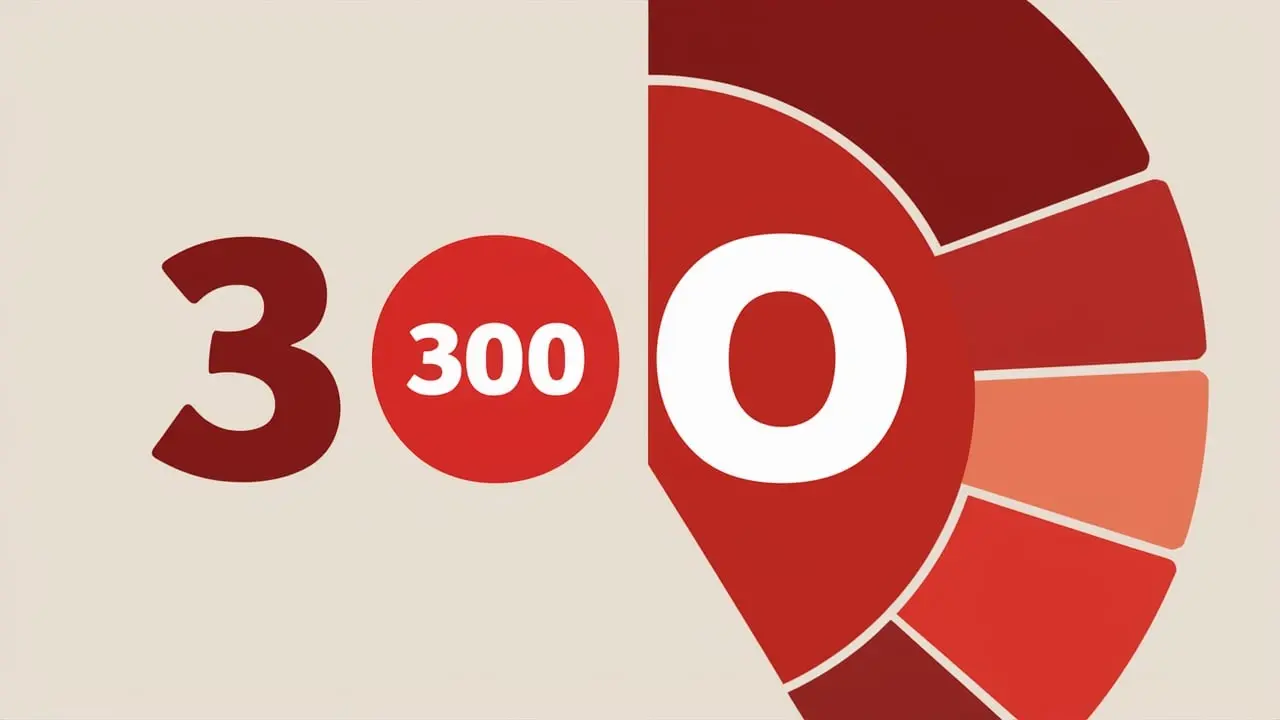-
Posted on: 23 Aug 2024

-
The credit score is a three-digit figure that helps creditors decide whether you are capable of repaying a loan on time. A credit score usually varies between 300 and 850, with a higher figure indicating a better rating. While most lenders consider a score below 580 as a poor or bad credit score.
A poor credit score is defined as a FICO score of below 580 or a VantageScore of below 600. FICO score is the most popular credit scoring model, and it was developed by the Fair Isaac Corporation. In this model, credit ratings vary within a range of 300 to 850. Thus, based on the FICO model, any score below 580 is regarded as a poor credit score.
VantageScore, developed by the three credit bureaus namely Experian, Equifax, and TransUnion also has score ranging from 300 to 850. But the thresholds are a bit higher, so having the score below 600 is considered bad credit according to this model.
Why Should Low Credit Scores Be Of Importance?
Credit scores and credit history are employed by the lending companies, creditors, and others to determine the possibility and likelihood of the borrower to repay the money borrowed or to pay the ongoing bills. In the case of credit scoring, the higher your score, the less risky you appear to other creditors or lenders.
That means if you are on the low credit score bracket you will find it very difficult to be approved for credit cards, car loans, mortgages and other related products. You will also be charged a higher interest rate since you are considered to be of a higher risk. It helps in developing a good credit score over time that enables you to secure better interest rates on your debts and get more credit facilities in emergencies.
What leads to this?
There are several possible reasons for a low credit score.
Here are some of the most common causes of poor credit:
-
Nonpayment of loans or bills
-
Breach of contract on debts
-
Having receivables on the collection lists
-
Having credit card balances and balances that are carried over to the next month
-
Applying for many credits at once or in a brief period is another issue that has to be taken into consideration.
- A short or negative credit history
How do you know that the credit score is too low? Any credit score below 580 is considered a bad credit score, and you will not be able to secure any loan from standard lending companies. And if you do get approved, you will pay higher interest rates because you’re considered a ‘high-risk’ candidate.
Some signs that your credit score is too low include:
-
You have been declined for loans or credit cards recently
-
You are still paying interest rates of 15% to 20% on loans
-
To be approved for loans, you have to have a co-signer
- When being connected to utilities or a cell phone, among others, you have to pay large deposits.
How to Start on the Right Track to Improve a Poor Credit Score
The good news is that credit scores are not fixed; they are subject to change from time to time depending on the behavior of the cardholder. It is important to understand that your credit rating is dynamic and depends on the way you handle your borrowing and payment processes. If you have poor credit presently, there are some steps you can start taking right away to build your scores higher over time:
Pay All Bills on Time: Your on-time payment history contributes to your credit score since it is a significant component of your rating. It is possible to note that even such a simple action as paying all accounts on time can lead to an increase in the score within several months in some cases. There should be some automatic payment plans established to avoid missing any of the payments on behalf of the more forgetful individuals.
Pay Down Credit Card Balances: In case you hold high balances in relation to the credit limits on cards, then your credit utilization ratio is pulled down leading to lower scores. Increase this important metric by bringing all these balances to below 30%, or as low possible, ideally. You can also pay off debt faster by transferring your balance to a lower rate card.
Limit New Credit Applications: Each application leads to a tough credit check; score may decline as a result. This means that it is wise to refrain from applying for multiple credit accounts within a short span when trying to boost your rating. It is recommended that your score should go up for roughly half a year before applying for new credit.
Check Credit Reports for Errors: The negative information that appears on your credit reports is very damaging to your scores if it is inaccurate. Get your free annual credit reports and look for any incorrect information or information that is outdated to challenge. Correcting mistakes can lead to more ratings.
Add Positive Information: It is possible to include positive payment details in your credit files despite having a poor credit standing. Other ways such as taking credit builder loans, applying for secured credit cards and having rent payment reported can assist in building a good credit record that will help in increasing your ratings gradually. Establishing credit histories are not easy but the benefits that come with it in terms of access to lower cost credit is enormous.
Don't let bad credit hold you back—contact us at (888) 803-7889 now!
-










